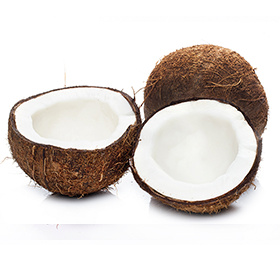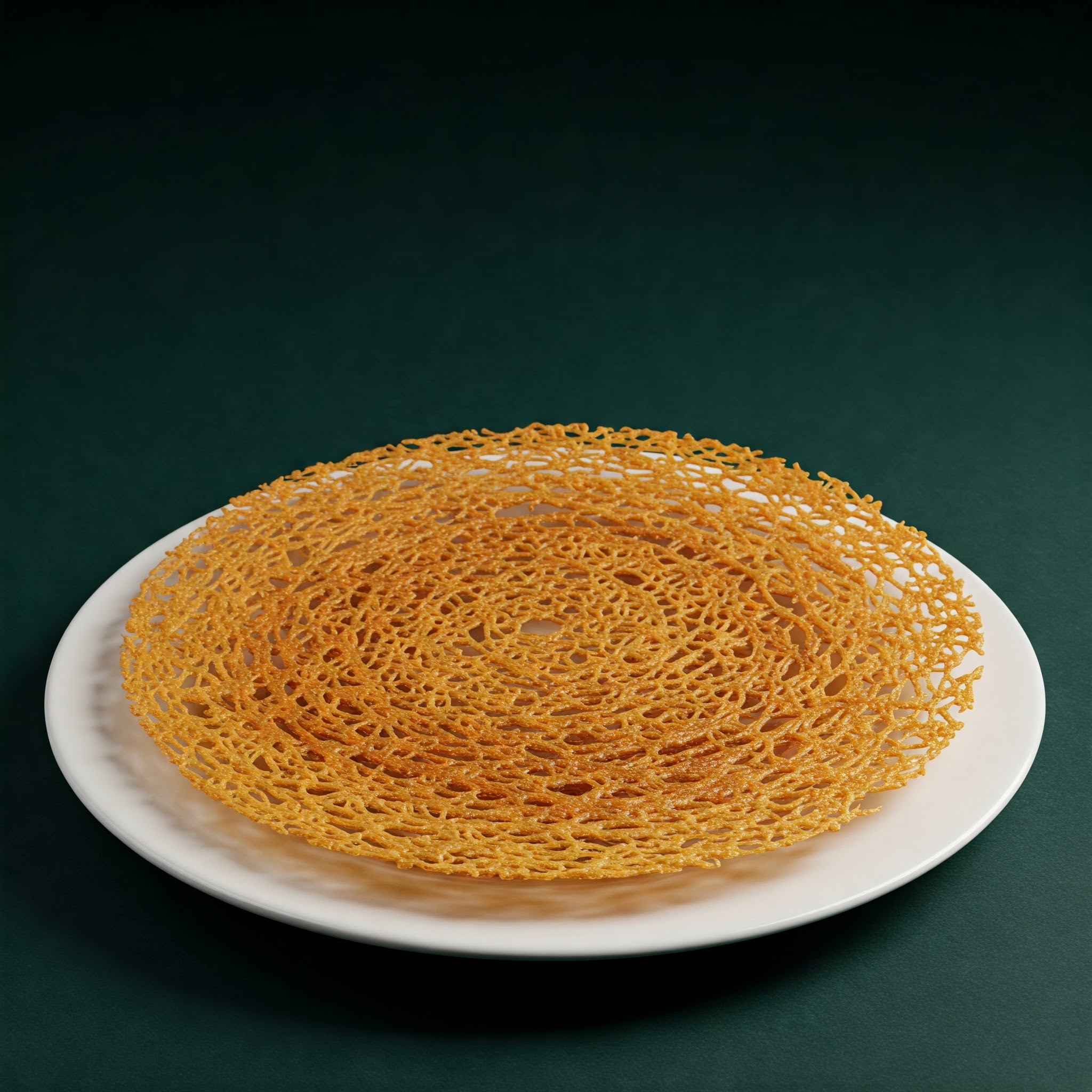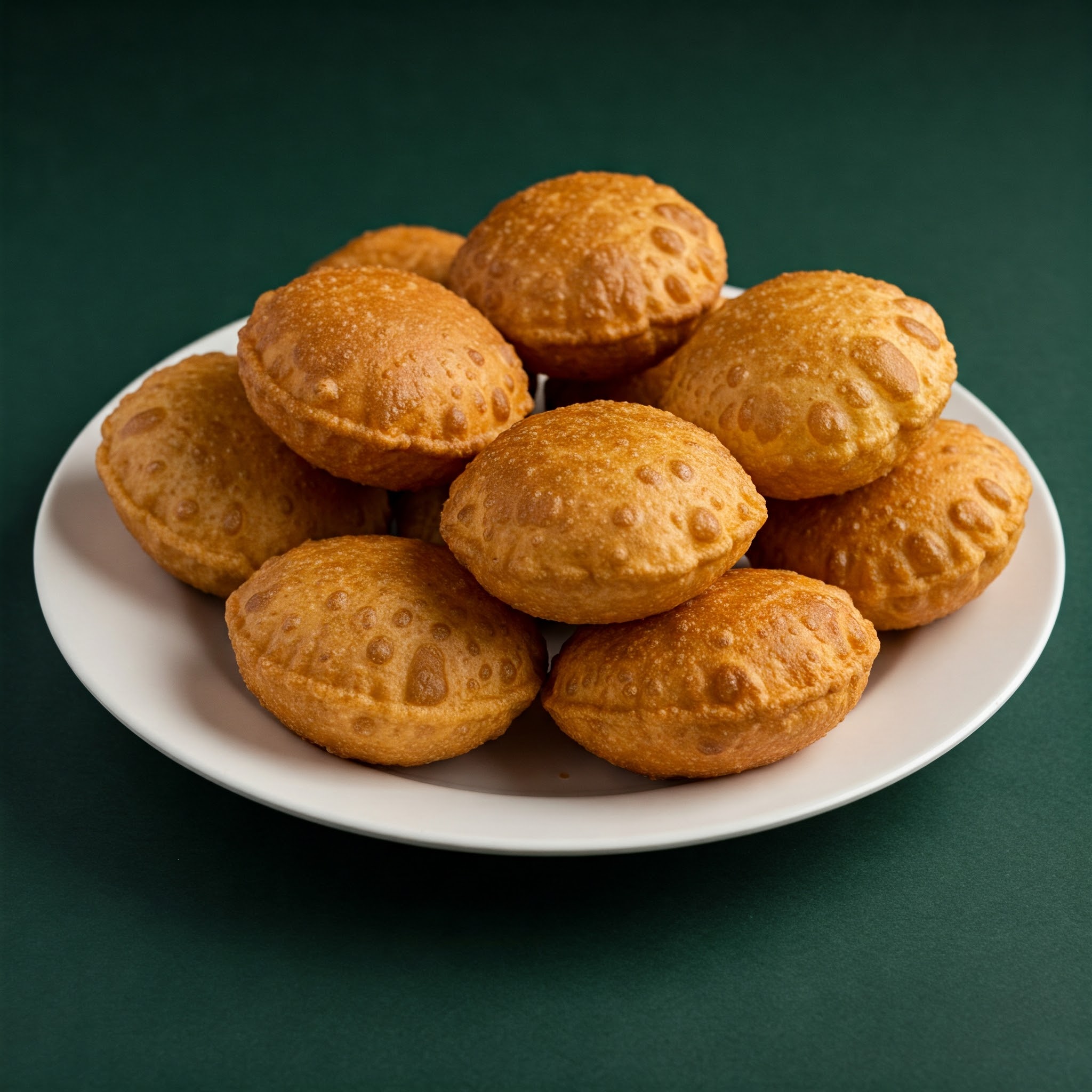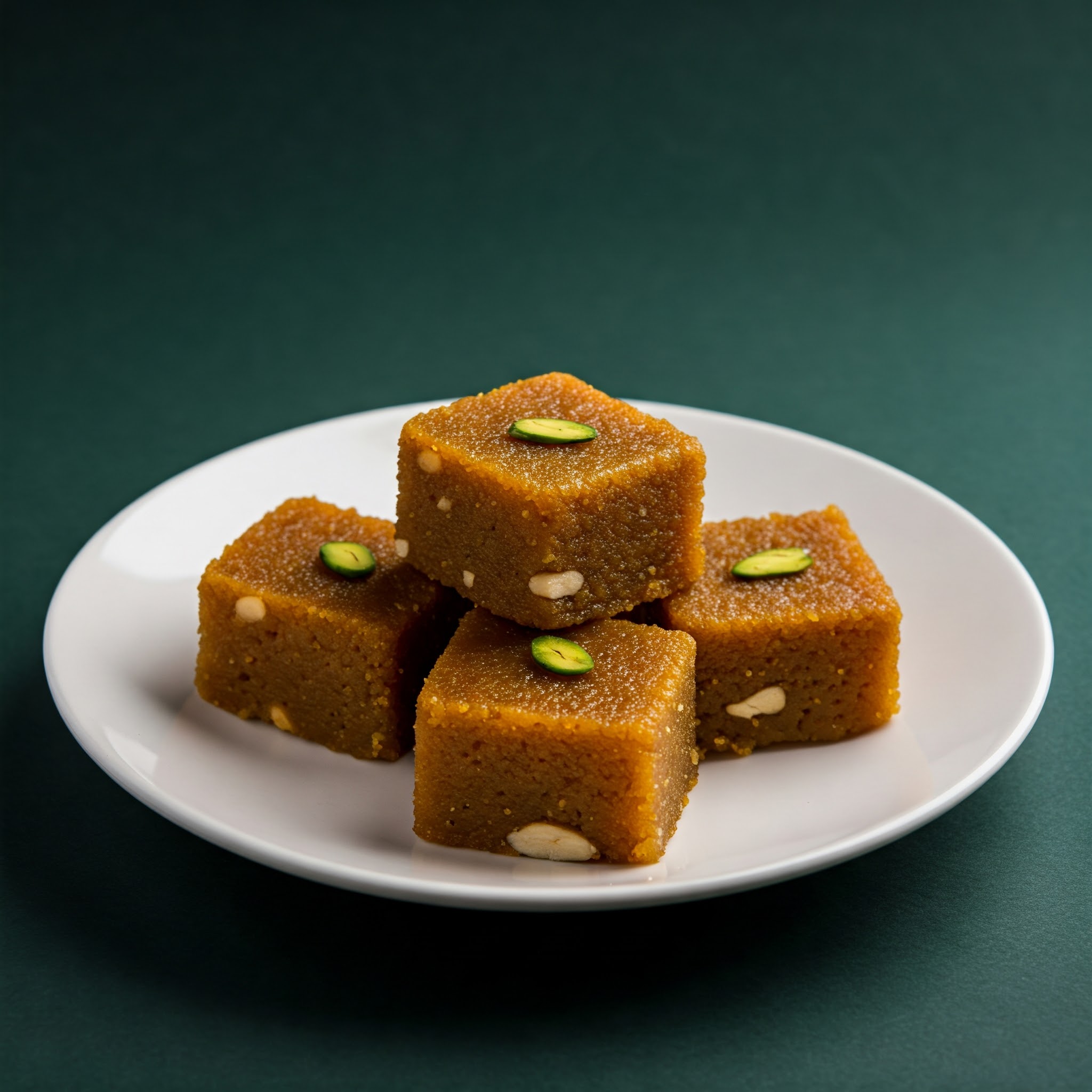Fresh Coconut (नारियल)
Naariyal

About Fresh Coconut
Coconut / नारियल : The Divine Elixir of Indian Cuisine
Naariyal/ Coconut is the fruit of the coconut palm, Coconuts are one of the top crops of tropics. Coconut flesh are high in fat and can be dried too, and can be eaten fresh. The Liquid of coconuts is used in many beverages.
Apart from edible kernels and the drink obtained from green nuts, Dried harvested coconut, known as copra is also edible, further Oil is extracted from dried copra known as Coconut Oil. Coconut Oil is another major cooking oil and famous for it’s culinary uses. One can also get Coconut milk and Cream from Coconut by pressing raw grated coconut flesh.
- Coconuts are Highly nutritious
- Coconuts helps in keeping heart healthy
- Coconuts stabilise blood sugar
- Coconuts contains powerful antioxidants
Stay away if you have allergy from coconut. Also coconut may promote weight gain as coconuts are high in calories. One can control the portion size of the coconut and include the coconut or it’s bi-products in balance diet for its healthy benefits.
In the heart of India, the coconut reigns as a symbol of nourishment and abundance, weaving its magic through the tapestry of our culinary traditions. Its lush, green fronds sway gracefully in the tropical breeze, whispering tales of ancient rituals and vibrant festivals. This humble fruit, often called the “Tree of Life,” blesses our palates with its versatile offerings—creamy coconut milk, fragrant grated flesh, and refreshing coconut water.
From the sun-kissed coasts of Kerala to the bustling streets of Maharashtra, coconut is an essential ingredient, gracing a multitude of dishes. Picture the silken texture of coconut curry, where tender morsels of vegetables are bathed in a luscious coconut sauce, fragrant with spices. Or envision the delightful crunch of coconut chutney, a perfect companion to crispy dosas, enhancing the flavors of every bite.
Not just a culinary delight, coconut also bestows a wealth of health benefits, rich in fiber, vitamins, and healthy fats. It nourishes the body, supports digestion, and elevates our culinary experiences to new heights. Its enchanting aroma and taste transport us to tropical paradises, evoking warmth and comfort with every mouthful.
To include coconut in your daily menu, logon to planmeal.com, where delicious and nutritious meal ideas await. Embrace the versatility of this magical fruit and let it inspire your cooking!
Coconut: Nature’s bounty, a taste of paradise!
Learn and Check on Planmeal How to include Coconut in your balanced diet.
Coconut holds significant importance in Indian Ayurveda, revered for its therapeutic properties. It is considered a balancing agent for the body, particularly beneficial for calming Pitta dosha. Rich in healthy fats, coconut is used to nourish the skin and support digestive health. Coconut oil is often applied for its moisturizing benefits and is used in massage therapies to enhance relaxation. Additionally, coconut water is valued for its hydrating properties and is recommended for maintaining electrolyte balance.
Coconut is also commonly featured in home remedies, such as using coconut oil for hair health, soothing dry skin, or as a natural remedy for coughs and respiratory issues. Its versatility and health benefits make it a staple in Ayurvedic medicine and daily wellness practices.
How to Store Fresh Coconut
To store a whole coconut, keep it in a cool, dry place away from direct sunlight. For a cut coconut, wrap the exposed flesh tightly in plastic wrap or place it in an airtight container, then refrigerate. Coconut water can be stored in a sealed container in the fridge for up to a week. If you have dried coconut, keep it in an airtight container in a cool, dark place to extend its shelf life. For long-term storage, consider freezing coconut flesh in a sealed bag, which can last several months. Always check for freshness before use.
Shelf Life of Fresh Coconut
Fresh coconuts can last about 2-3 months if kept whole. Once opened, the flesh and water should be consumed within 1-2 days when refrigerated. Dried coconut can last up to a year if stored properly.
How to Check Fresh Coconut Before Buying
When buying coconuts from a local vendor, start by examining the shell. It should be hard and free of cracks or mold. Shake the coconut gently; if you hear the water sloshing inside, it's fresh. Check for weight; a heavier coconut typically contains more water. Look for three "eyes" on one end; they should be clean and not discolored.
Press the coconut gently; it should feel firm without any soft spots. If you're buying a whole coconut, ensure it’s not leaking. Procuring coconuts in bulk can be advisable if you use them regularly, as they can be stored for several weeks if kept in a cool, dry place. However, ensure you can consume them before they spoil. For convenience, consider buying smaller quantities more frequently if you're unsure about your usage.
Explore
Explore our services and take your business to the next level.
Recent Posts

Kuttu Chilla is the perfect addition to your weekly menu, offering a healthy and...

Shakkarkand Tikki is the perfect blend of taste and nutrition, making it an idea...

Kuttu Aloo Ki Poori is a delightful addition to your weekly meal plan, offering...

Kuttu Ki Barfi is the perfect addition to a balanced weekly menu, offering a del...

Shakkarpare is the perfect sweet treat to complement your balanced weekly menu....
Ready for a Healthier You?
Take control of your wellness! Get a customized meal plan that fits your lifestyle. It's time to eat smarter, feel better, and transform your life!
Get Your Plan Now!Already a member? Login and start now!
Nutrition Facts
Serving Size:
Servings Per Container: 1
| Amount Per Serving | ||
|---|---|---|
| Calories | 408.93 | |
| Fat | ||
| Saturated Fat | ||
| Trans Fat | ||
| Cholesterol | 0 | |
| Sodium | 8.12 | |
| Carbs | 6.3 | |
| Fiber | ||
| Sugar | 0 | |
| Protein | 3.33 | |
| VitaminD | ||
| Calcium | 8 | |
| Iron | 1.3 | |
| Potassium | 246 | |
* Percent Daily Values are based on a 2000 calorie diet.
* Percent Daily Values are based on a 2000 calorie diet.

